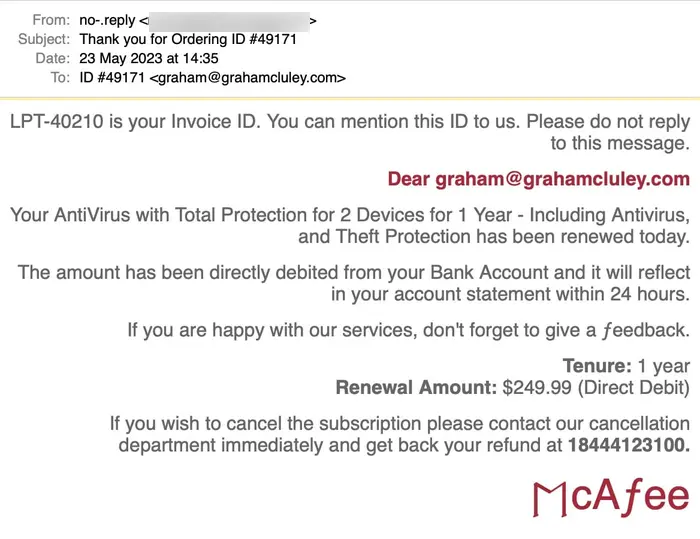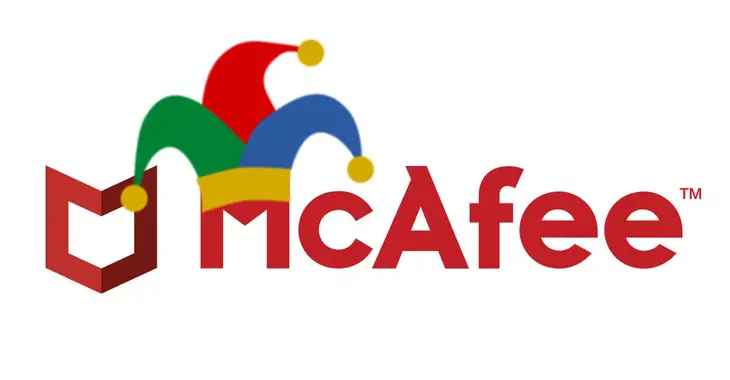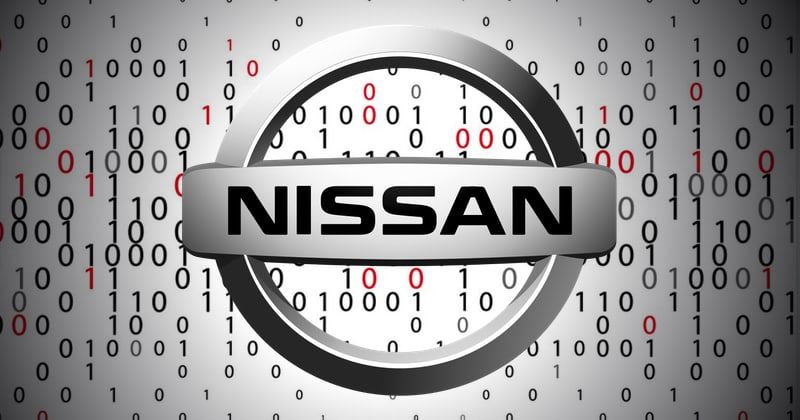


I
was
surprised
to
receive
an
email
this
week
telling
me
that
I
had
renewed
my
annual
subscription
for
McAfee
virus
protection.
Why
a
surprise?
Well,
I
think
the
only
time
I’ve
ever
run
McAfee’s
anti-virus
product
on
one
of
my
computers
was
back
in
the
late
1990s
when
McAfee
acquired
the
company
I
was
working
for
at
the
time…
…and
I
certainly
didn’t
pay
for
that.
However,
the
email
tells
me
that
my
bank
account
has
already
been
debited
for
$249.99
(that
sounds
like
a
lot,
even
if
it
is
to
protect
two
devices
with
not
just
anti-virus
but
also
“theft
protection.”)
Here’s
the
email
I
received:


Hmm…
that
wacky
McAfee
logo
composed
with
Unicode
characters
isn’t
the
only
reason
why
this
email
raised
my
suspicions.
So,
what’s
actually
going
on
here?
There’s
no
attachment
to
the
email
–
so
it’s
not
the
case
that
the
email
is
trying
to
trick
me
into
opening
a
malicious
attachment.
And
there
are
also
no
links
–
so
I’m
not
being
duped
into
entering
personal
information
or
passwords
into
a
phishing
page.
Instead,
this
email
wants
me
to
scare
me
into
making
a
phone
call.
According
to
the
email,
if
I
wish
to
cancel
the
subscription,
I
should
call
McAfee’s
cancellation
department
immediately
on
the
supplied
toll-free
number.
Of
course,
it’s
not
going
to
be
a
genuine
McAfee
employee
who
answers
that
phone
call.
But
if
I
were
able
to
telephone
that
number
from
the
UK,
my
guess
is
that
I
would
be
tricked
into
handing
over
some
personal
financial
information
that
would
then
be
used
against
me.
I
haven’t
called
the
number,
and
if
you
receive
a
similar
message
you
shouldn’t
either.
At
the
very
least,
check
your
bank
account
to
see
if
you
have
actually
been
charged
for
something
before
you
take
any
steps
to
get
your
money
back…
Found
this
article
interesting?
Follow
Graham
Cluley
on
Twitter
or
Mastodon
to
read
more
of
the
exclusive
content
we
post.





